Tax Refund in Japan
How do foreign tourists get a tax refund in Japan? Japan is an ideal tax free shopping paradise for many visitors, whether it is in Shinjuku, Shibuya, Ginza, Akihabara in Tokyo, Shinsaibashi, Dotonbori in Osaka, there are countless department stores, electrical and pharmaceutical stores. There are not only fashionable Japanese clothing but also exquisite handicrafts, high-tech humanized electrical products. Yet Japan, with its advantageous prices and relaxed tax rebate policy, you can save a small amount of spending before you leave the country. This article will give you a detailed introduction to Japan's tax refund policy and the tax refund process. Since Japan's tax exemption system changes every year, please check whether the tax exemption system has changed before traveling.
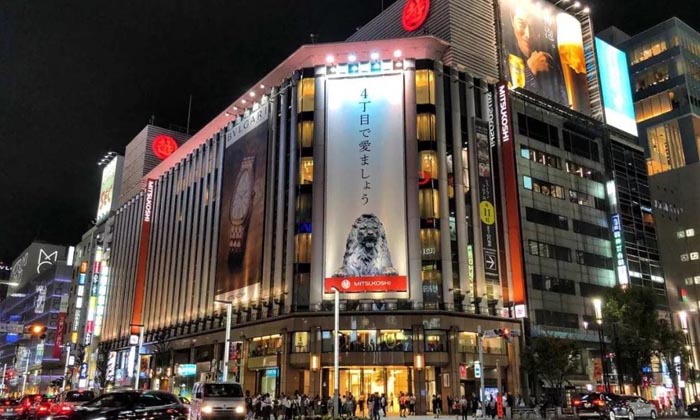
Consumption Tax in Japan
Most of the duty-free shops in Japan are mainly for reducing consumption tax. In Japan, taxes and the price of goods are separate. Generally, there are two kinds of prices on Japanese price tags, that is, the price of the product itself and the price after the consumption tax is added, that is, the price including tax. At present, the tax rate of some commodities in Japan has been increased from 8% to 10% from October 2019.
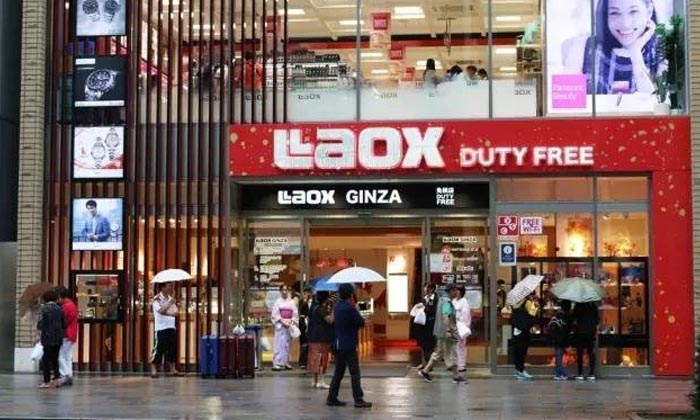
The Current Tax Exemption System
Japan has implemented a new tax exemption system as of July 1, 2018. The new tax exemption system does not distinguish between the types of common goods and consumables. As long as the consumption amount exceeds 5,000 yen, you can receive a tax exemption. Consumables refer to food, beverages, alcohol, pharmaceuticals, cosmetics, etc. Consumables can be refunded within 5,000 yen to 500,000 yen on the same day at the same store. But the products need to be brought back to the country within 30 days of purchase. General goods are goods other than consumables, such as electrical appliances, shoes, bags, clothes, watches, jewelry, crafts, etc. Tax refunds are available for general merchandise at the same store on the same day when the purchase amount is more than 5,000 yen.
Tax Refund Conditions
Foreign tourists holding visa of up to 90 days are eligible for a tax refund. The spending amount is over 5,000 yen.
Tax refundable: Goods taken out of the country, going outbound. Unused and packed goods carried in personal luggage.
Non-refundable: Goods used for sale or for other commercial purposes.
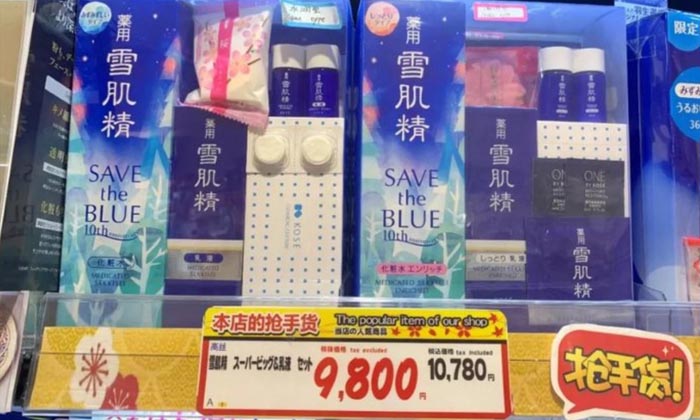
Tax Refund Procedures
First of all, tax refund procedures can only be processed at duty-free shops approved by the Japanese Revenue Agency. A tax refund is only available after presenting your passport when purchasing goods. Generally, duty-free shops in Japan put a duty-free sign on the front of the shop or in front of the service center.
In Japan, there are two methods of tax refund: one if to present a passport at the time of settlement and directly deduct the consumption tax from the amount purchase. The other is to show the purchased goods, shopping receipts, and passports at the duty-free counter on the same day after paying the tax-included amount, then go through the tax refund procedure and return the consumption tax paid before.
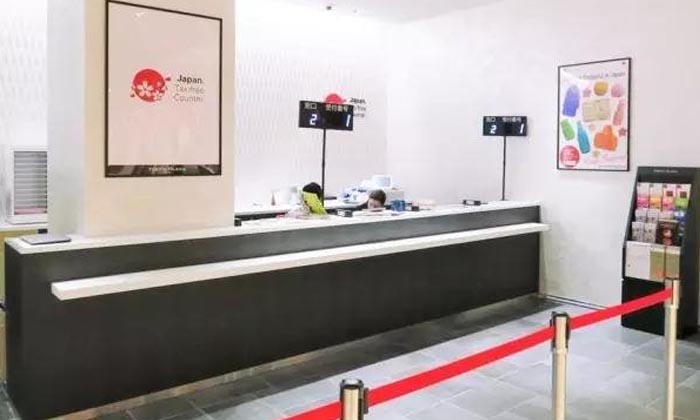
The first type of tax refund process: consumption tax is directly deducted from the purchase amount.
(1) Present your passport when purchasing goods at duty-free shops and pay the purchase amount after deducting consumption tax. Then sign the purchaser's affidavit.
(2) The sales clerk responsible for tax refunds affixed a purchase record ticket (a document recording the purchased duty-free goods) on the passport and stamped it between the passport and the purchase record ticket.
(3) When returning home, the Japanese Customs will recover the record tickets.
The second type of tax refund process: After paying the tax-included amount, you will go through the tax refund procedure on the same day and return the consumption tax paid before.
(1) After shopping, go to the designated tax refund counter or customer service center and present the purchased goods, my passport and a shopping receipt. (If you are using a credit card for shopping, you must also show your credit card for a tax refund.) Sign the purchaser's affidavit.
(2) The amount of consumption tax paid before is refunded in cash. Customers who use a credit card can also refund the consumption tax amount directly to the credit card. (Some shops need to pay a handling fee when refunding taxes.)
(3) When returning to Japan, the Japanese customs will collect the record tickets.
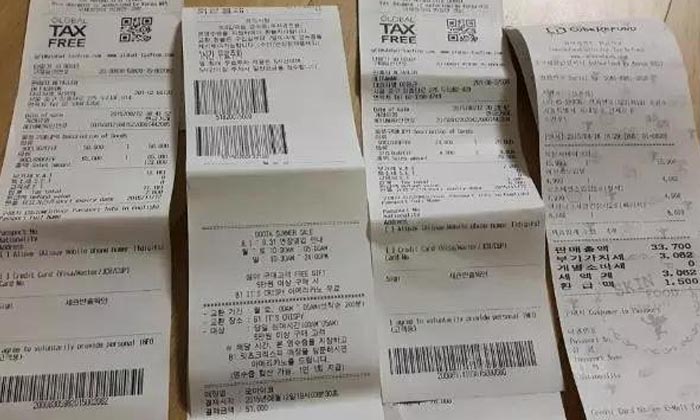
News: From June 10, 2022, Japan has opened its borders since imposing strict entry restrictions two years ago. and foreign travelers who apply for new tourist visas need a complete prescribed applications in the ERFS System through qualified travel agencies in Japan, andtravelers from overseas will not be required to self-isolate, regardless of vaccination status.
How do foreign tourists get a tax refund in Japan? Japan is an ideal tax free shopping paradise for many visitors, whether it is in Shinjuku, Shibuya, Ginza, Akihabara in Tokyo, Shinsaibashi, Dotonbori in Osaka, there are countless department stores, electrical and pharmaceutical stores. There are not only fashionable Japanese clothing but also exquisite handicrafts, high-tech humanized electrical products. Yet Japan, with its advantageous prices and relaxed tax rebate policy, you can save a small amount of spending before you leave the country. This article will give you a detailed introduction to Japan's tax refund policy and the tax refund process. Since Japan's tax exemption system changes every year, please check whether the tax exemption system has changed before traveling.

Tax Refund and Exemption
The tax exemption is that the price of the product itself is exempted from taxes and fees. While tax refund is the tax refund after buying the tax-included goods, the tax refund is the value-added tax and the consumption tax, and the tax exemption is the import duty. However, many Japanese products have no tariffs or are very low. Duty-free shops and tax-free shops do not include customs duties, so most of the exemptions and refunds refer to consumption tax.Consumption Tax in Japan
Most of the duty-free shops in Japan are mainly for reducing consumption tax. In Japan, taxes and the price of goods are separate. Generally, there are two kinds of prices on Japanese price tags, that is, the price of the product itself and the price after the consumption tax is added, that is, the price including tax. At present, the tax rate of some commodities in Japan has been increased from 8% to 10% from October 2019.

The Current Tax Exemption System
Japan has implemented a new tax exemption system as of July 1, 2018. The new tax exemption system does not distinguish between the types of common goods and consumables. As long as the consumption amount exceeds 5,000 yen, you can receive a tax exemption. Consumables refer to food, beverages, alcohol, pharmaceuticals, cosmetics, etc. Consumables can be refunded within 5,000 yen to 500,000 yen on the same day at the same store. But the products need to be brought back to the country within 30 days of purchase. General goods are goods other than consumables, such as electrical appliances, shoes, bags, clothes, watches, jewelry, crafts, etc. Tax refunds are available for general merchandise at the same store on the same day when the purchase amount is more than 5,000 yen.
Tax Refund Conditions
Foreign tourists holding visa of up to 90 days are eligible for a tax refund. The spending amount is over 5,000 yen.
Tax refundable: Goods taken out of the country, going outbound. Unused and packed goods carried in personal luggage.
Non-refundable: Goods used for sale or for other commercial purposes.

Tax Refund Procedures
First of all, tax refund procedures can only be processed at duty-free shops approved by the Japanese Revenue Agency. A tax refund is only available after presenting your passport when purchasing goods. Generally, duty-free shops in Japan put a duty-free sign on the front of the shop or in front of the service center.
In Japan, there are two methods of tax refund: one if to present a passport at the time of settlement and directly deduct the consumption tax from the amount purchase. The other is to show the purchased goods, shopping receipts, and passports at the duty-free counter on the same day after paying the tax-included amount, then go through the tax refund procedure and return the consumption tax paid before.

The first type of tax refund process: consumption tax is directly deducted from the purchase amount.
(1) Present your passport when purchasing goods at duty-free shops and pay the purchase amount after deducting consumption tax. Then sign the purchaser's affidavit.
(2) The sales clerk responsible for tax refunds affixed a purchase record ticket (a document recording the purchased duty-free goods) on the passport and stamped it between the passport and the purchase record ticket.
(3) When returning home, the Japanese Customs will recover the record tickets.
The second type of tax refund process: After paying the tax-included amount, you will go through the tax refund procedure on the same day and return the consumption tax paid before.
(1) After shopping, go to the designated tax refund counter or customer service center and present the purchased goods, my passport and a shopping receipt. (If you are using a credit card for shopping, you must also show your credit card for a tax refund.) Sign the purchaser's affidavit.
(2) The amount of consumption tax paid before is refunded in cash. Customers who use a credit card can also refund the consumption tax amount directly to the credit card. (Some shops need to pay a handling fee when refunding taxes.)
(3) When returning to Japan, the Japanese customs will collect the record tickets.

Duty-Free Shops in Japan
So far, the number of Japan's GST duty-free shops has reached 50,198. As long as you want to buy, you can usually find it around. Not only is there the airport's duty-free shops, but also major department stores such as Daimaru, Seibu, Tobu, Matsuya, Keio, etc., and general shopping malls such as Bic Camera, Jian Temple, and Don Quixote are on the list.News: From June 10, 2022, Japan has opened its borders since imposing strict entry restrictions two years ago. and foreign travelers who apply for new tourist visas need a complete prescribed applications in the ERFS System through qualified travel agencies in Japan, andtravelers from overseas will not be required to self-isolate, regardless of vaccination status.
Most Frequently Asked Questions
-
What is the difference between tax-free and tax refund?Tax free product has a net price after deducting tax. Product with tax refund, on the other hand, allows customers to re-claim tax after paying the total. For a tax refund, you will be refunded on value-added tax and consumption tax. When you purchase a tax free product, you get exempted from import tax. Many products in Japan have very little import tax if any, so tax exempt or tax refund usually refers to consumption tax.
-
What type of tax is waivered by tax free shops?The tax waivered is usually the consumption tax. In Japan, tax and price are listed separated. Products in Japan usually show two prices: the original price and the price including tax. Starting October 2019, the tax on some certain products increases from 8% to 10%.
-
How much do I need to spend to qualify for tax free?Since the implementation of the new tax policy in 1 July 2018, any purchase, on common goods or consumables, over 5000 yen qualifies for tax free. Consumables include food, beverages, alcohol, pharmaceuticals, cosmetics, etc.
-
What is the tax refund requirement?For foreign visitors with a less than 90 days visa, they can get tax refund for any purchase over 5000 yen. Unopened products carrying out of the country qualify for tax refund, but products for commercial purpose do not qualify for tax refund.
-
What is the process on getting a tax refund?In Japan, there are two ways to get a tax refund. One method is to get tax deduction at checkout counter by showing your passport. Another method is to first pay with tax, and then get a tax refund at a designate counter within the same day of purchase by showing your purchase, receipt, and passport.
-
How do I get a tax refund after paying with tax?You can claim a tax refund at designate counter or service center. You will have to show your purchase, receipt, and passport. After signing any required document, the tax will be returned to you in cash. If you pay by credit card, the tax can also be refunded to the credit card.
-
What are the tax free shops in Japan?There are approximately 50198 tax free shops in Japan, where you can buy almost anything you want. The tax free shops are located not only in airports, but also large department stores such as Daimaru, Seibu, Tobu, Matsuya, and Keio, Big Camera, Donki, and Don Quixote.
-
Are prices shown in shops including or excluding consumption tax?Whether the price is shown with or without consumption tax depends on the type of shops, so it is important to make sure whether the price tag shows the full price or not.
Japan Office
- Tel: +81 50-3701-6391
- Email: info@japanholiday.com
- Working Hours: 8am-7pm, (Japan)
USA Office
- Tel: +1-6265617117
- Email: info@japanholiday.com
- Working Hours: 8am-7pm, Pacific Time

